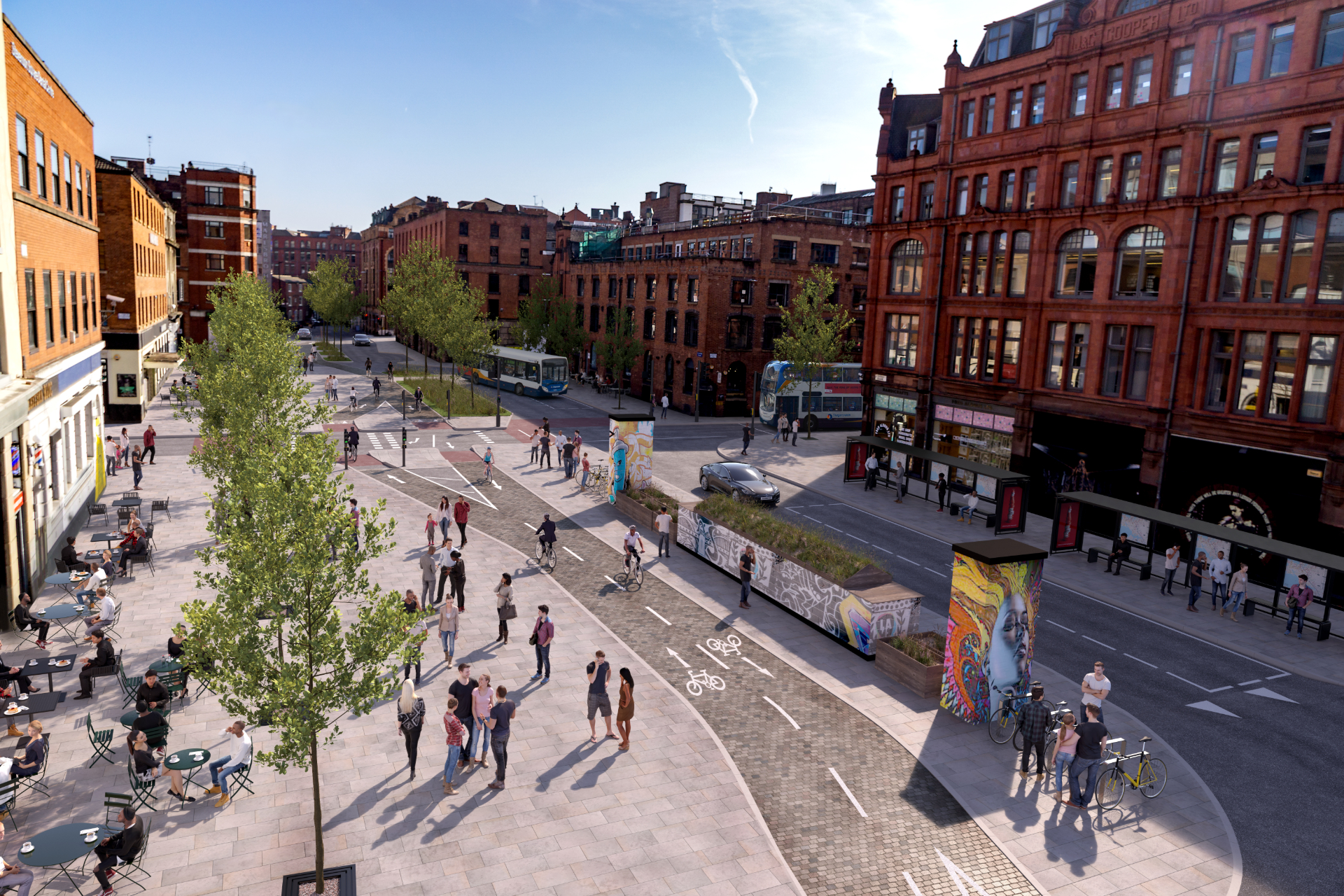
A Productivity Panacea?
Pick a crisis; inactively induced illness that is crippling the NHS, air quality knocking thousands of healthy life years off the nation’s collective lifespan, millions of work hours lost annually through congestion and of course climate change that’s threatening our very existence. Every one of these could be positively impacted, simply by riding or strolling our short journeys. Yes, cycling and walking is as close to a silver bullet as we’re going to get for our most serious woes. Not only would changing the way we move make lives better, changing our travel habits makes total economic sense too.
This might sound a bit simplistic, but there is a mountain of evidence to back up this claim. In Greater Manchester, a region fairly typical in terms of transport, 30% of all journeys less than one kilometer are made by car - more than 200 million a year. That’s a 10-15-minute stroll for most, or a leisurely five-minute bike ride. The total return of walking or cycling these short journeys to shops, schools and workplaces, has been estimated at £6 billion, money that could be spent positively improving the lives and productivity of the people who live in the area.
In 2017 Andy Burnham decided this state of affairs could not be allowed to continue, people had to be given an attractive alternative to driving and a plan began to form.
Two years later, the Our Network vision was unveiled, a plan for rail, bus and tram services to be combined into a single, seamless transport offer. But to choose this new, mega-service over the car, people need to be able to access it easily and in comfort. Which is why the foundation of the plan is a fully joined up 1,800-mile network of protected space for cycling and walking. Dubbed the ‘Bee Network’, these routes will connect every neighbourhood in the region and in many cases, will be the only part of the network that’s needed.
Fear of change has been the downfall of other plans to transform local travel, as people object to street alterations that are imposed upon them. So Greater Manchester adopted a whole new design strategy to avoid the same fate; it put the pen in the hands of residents from the start.
Revolutionary in its simplicity, the people who live and work in Greater Manchester were engaged to produce the first draft and showed their local councils what they wanted their neighbourhoods to look like, rather than the other way around. When empowered, it was amazing how ambitious people were. That first draft was posted online for wider comment. More than 4,000 responses were received. Rather than being critical, the feedback actually increased the size of the network from 1,000 to 1,800 miles. It was a powerful message for those in power; people wanted their children to walk or ride to school and they themselves wanted to be able to leave the car at home.
The impact of this mobility shift on regional business is forecast to be enormous. Estimates predict an economic benefit of over £3.7 billion on the basis of reduced absenteeism alone - with people who cycle taking on average 1.3 fewer sick days per year than non-cyclists. And these figures don’t take into account the broader health benefits. Even cautious estimates suggest the region’s NHS service will save £6.74 billion once the full network is completed over a ten-year period.
You might have sensed a ‘but’ coming in this transport fairytale and there is. For all the planning, political and public will, this transformational project will only be realised if government commits to back the region. Commitment that still hasn’t been secured.
With over £200 million of funding, the Bee Network requires another £1.3 billion to complete the 10-year project. Whilst it’s unquestionably a lot of money, it needs to be viewed in context. It cost nearly £1 billion to refurbish a single tube station in London and £1.4 billion is currently being invested in a junction outside Bedford to improve journey time for drivers by 10 minutes. Neither of those can make the same economic claims as Greater Manchester’s Bee Network, that will deliver at least 2.5 million daily active trips.
The Prime Minister has made his vision clear: “cyclists enjoying hundreds of miles of brand-new separated lanes, with ‘mini-Hollands’ blooming like so many tulips in towns and cities right across the country”. A plan of this ambition needs financial support of the size that London has received - a true example of "levelling up".